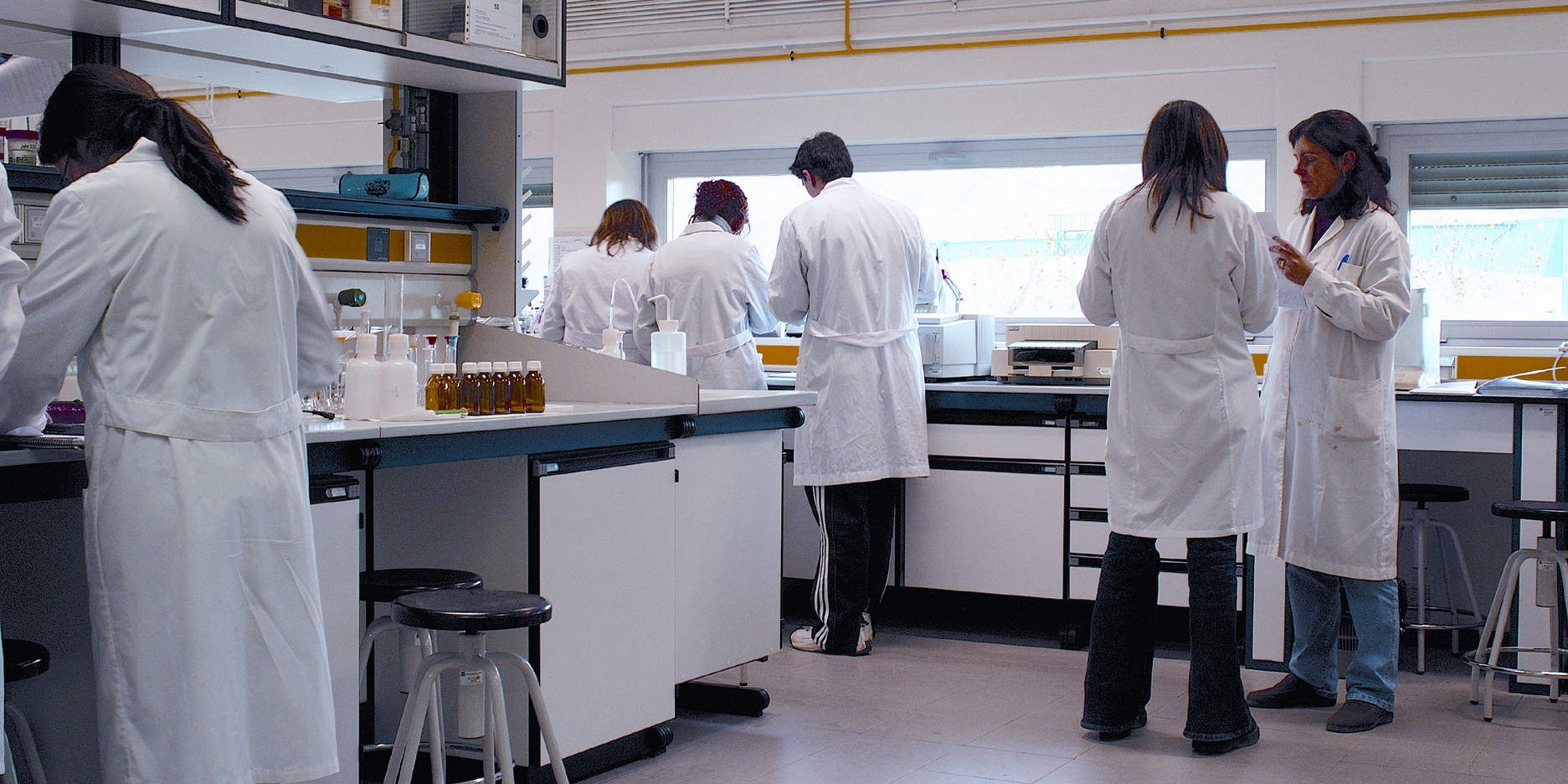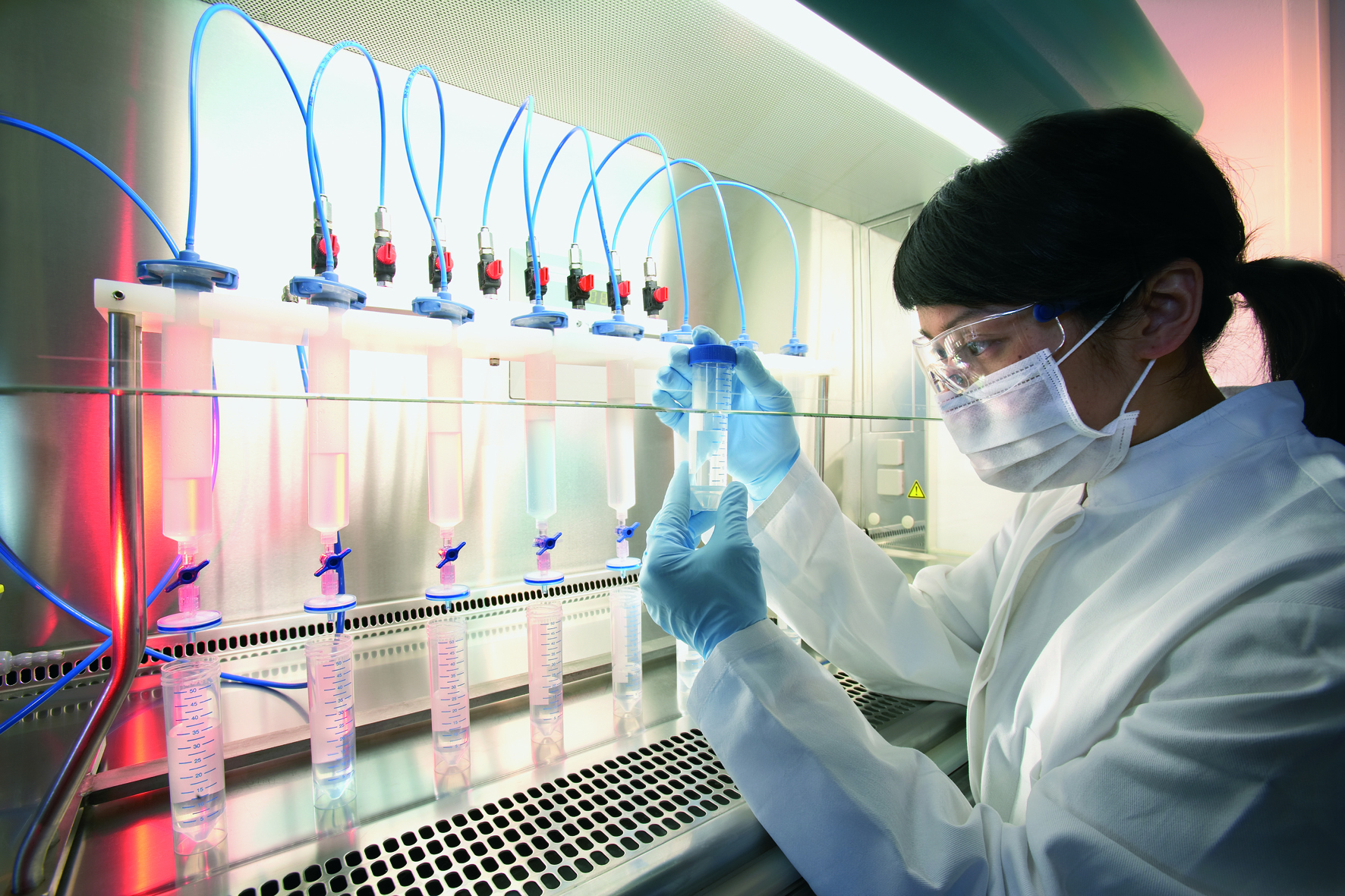burnin1
Well-Known Member
From High Times
Cannabis Company Aims to Reproduce Rare Cannabinoids Using DNA

Gingko Bioworks and Cronos Group want to replace greenhouse cultivation with genetic engineering.
September 4, 2018
By Adam Drury
The Boston-based biotech firm Gingko Bioworks Inc. recently announced a major partnership with Canadian cannabis company Cronos Group Inc. to work on what could be a groundbreaking and potentially epoch-shifting innovation in cannabis production. Taking a page straight out of Jurassic Park, Gingko wants to use plant DNA to genetically (re)produce cannabinoids directly, without growing the cannabis plants that naturally produce them.
Why Grow Plants When You Can Just Make THC?
The cannabis plant produces more than one hundred different chemical compounds called phytocannabinoids, or cannabinoids for short. The two most popular, market-worthy, and ubiquitous are THC and CBD. But there are dozens of other medicinally or recreationally relevant cannabinoids in cannabis. The problem is that they occur in such small or trace amounts that there’s no profitable way to extract and concentrate them at scale. Which means that to obtain these rare cannabinoids, consumers have to turn to flower or other “whole-plant” consumption methods.
But Cronos Group and Gingko Bioworks want to change that. According to Bloomberg, Gingko is working for Cronos to develop methods for engineering cannabis’ active compounds genetically. In other words, independent of the plant.
Instead, Gingko wants to isolate the rare, trace cannabinoids in the cannabis plant and sequence the parts of the genome responsible for producing them. Then, it will use the DNA sequence to artificially produce the rare cannabinoids in large quantities.
Imagine Cannabis Products Rich In Trace Cannabinoids
Take, for example, the little-known delta-8-THC, an isomer of the more common delta-9-THC you probably know and love. When you buy THC concentrates, there isn’t a very good chance they contain delta-8. And if you smoke flower, you’re probably not inhaling enough delta-8 relative to how much delta-9 you’re consuming to experience any different effects.
But delta-8-THC has a lower psychoactive footprint. It doesn’t get you as high. And it offers additional therapeutic benefits that delta-9 doesn’t. For example, research has strongly correlated delta-8-THC with the death of cancer cells and tumor reduction.
For extract manufacturers and whole plant cultivators, however, there’s never going to be a way to start with cannabis plants and produce enough to bring delta-8-THC cartridges to market. Or to breed strains with high concentrations of the rare cannabinoid.
That’s the potential breakthrough Gingko is chasing. If they can sequence the plant DNA that naturally produces delta-8-THC, they can genetically engineer larger quantities of that specific cannabinoid in the lab. Maybe that leads to the development of a new cannabis treatment for cancer. Maybe it leads to new recreational products. Gingko calls it “brewery economics,” in reference to previous interventions in the alcohol industry.

Will Lab-Grown Cannabinoids Make Cultivation Obsolete?
For many reasons, reproducing cannabinoids directly from DNA without growing plants has some key advantages. Lab synthesis isn’t subject to climate or grow conditions or regional variables. Everything is more consistent, predictable and therefore more cost-effective.
But will it be enough to render the traditional cultivation and extraction industry obsolete? Cronos Group CEO Mike Gorsenstein thinks so. In fact, Gorsenstein compares what Gingko wants to do with bringing a Formula One race car to a foot race.
And that means the global cannabis industry could be on the verge of a paradigm shift. Already supply gluts are cutting into growers’ margins, and cultivation is steadily revealing itself as a sector of diminishing returns. Treating cannabis like a technology venture rather than an agriculture industry, as Cronos does, is a sign of things to come. “The reality is that brewery economics is going to wipe the floor with farming economics,” Gingko CEO Jason Kelley told Bloomberg.
https://hightimes.com/news/cannabis-company-aims-reproduce-rare-cannabinoids-using-dna/
Cannabis Company Aims to Reproduce Rare Cannabinoids Using DNA

Gingko Bioworks and Cronos Group want to replace greenhouse cultivation with genetic engineering.
September 4, 2018
By Adam Drury
The Boston-based biotech firm Gingko Bioworks Inc. recently announced a major partnership with Canadian cannabis company Cronos Group Inc. to work on what could be a groundbreaking and potentially epoch-shifting innovation in cannabis production. Taking a page straight out of Jurassic Park, Gingko wants to use plant DNA to genetically (re)produce cannabinoids directly, without growing the cannabis plants that naturally produce them.
Why Grow Plants When You Can Just Make THC?
The cannabis plant produces more than one hundred different chemical compounds called phytocannabinoids, or cannabinoids for short. The two most popular, market-worthy, and ubiquitous are THC and CBD. But there are dozens of other medicinally or recreationally relevant cannabinoids in cannabis. The problem is that they occur in such small or trace amounts that there’s no profitable way to extract and concentrate them at scale. Which means that to obtain these rare cannabinoids, consumers have to turn to flower or other “whole-plant” consumption methods.
But Cronos Group and Gingko Bioworks want to change that. According to Bloomberg, Gingko is working for Cronos to develop methods for engineering cannabis’ active compounds genetically. In other words, independent of the plant.
Instead, Gingko wants to isolate the rare, trace cannabinoids in the cannabis plant and sequence the parts of the genome responsible for producing them. Then, it will use the DNA sequence to artificially produce the rare cannabinoids in large quantities.
Imagine Cannabis Products Rich In Trace Cannabinoids
Take, for example, the little-known delta-8-THC, an isomer of the more common delta-9-THC you probably know and love. When you buy THC concentrates, there isn’t a very good chance they contain delta-8. And if you smoke flower, you’re probably not inhaling enough delta-8 relative to how much delta-9 you’re consuming to experience any different effects.
But delta-8-THC has a lower psychoactive footprint. It doesn’t get you as high. And it offers additional therapeutic benefits that delta-9 doesn’t. For example, research has strongly correlated delta-8-THC with the death of cancer cells and tumor reduction.
For extract manufacturers and whole plant cultivators, however, there’s never going to be a way to start with cannabis plants and produce enough to bring delta-8-THC cartridges to market. Or to breed strains with high concentrations of the rare cannabinoid.
That’s the potential breakthrough Gingko is chasing. If they can sequence the plant DNA that naturally produces delta-8-THC, they can genetically engineer larger quantities of that specific cannabinoid in the lab. Maybe that leads to the development of a new cannabis treatment for cancer. Maybe it leads to new recreational products. Gingko calls it “brewery economics,” in reference to previous interventions in the alcohol industry.

Will Lab-Grown Cannabinoids Make Cultivation Obsolete?
For many reasons, reproducing cannabinoids directly from DNA without growing plants has some key advantages. Lab synthesis isn’t subject to climate or grow conditions or regional variables. Everything is more consistent, predictable and therefore more cost-effective.
But will it be enough to render the traditional cultivation and extraction industry obsolete? Cronos Group CEO Mike Gorsenstein thinks so. In fact, Gorsenstein compares what Gingko wants to do with bringing a Formula One race car to a foot race.
And that means the global cannabis industry could be on the verge of a paradigm shift. Already supply gluts are cutting into growers’ margins, and cultivation is steadily revealing itself as a sector of diminishing returns. Treating cannabis like a technology venture rather than an agriculture industry, as Cronos does, is a sign of things to come. “The reality is that brewery economics is going to wipe the floor with farming economics,” Gingko CEO Jason Kelley told Bloomberg.
https://hightimes.com/news/cannabis-company-aims-reproduce-rare-cannabinoids-using-dna/


